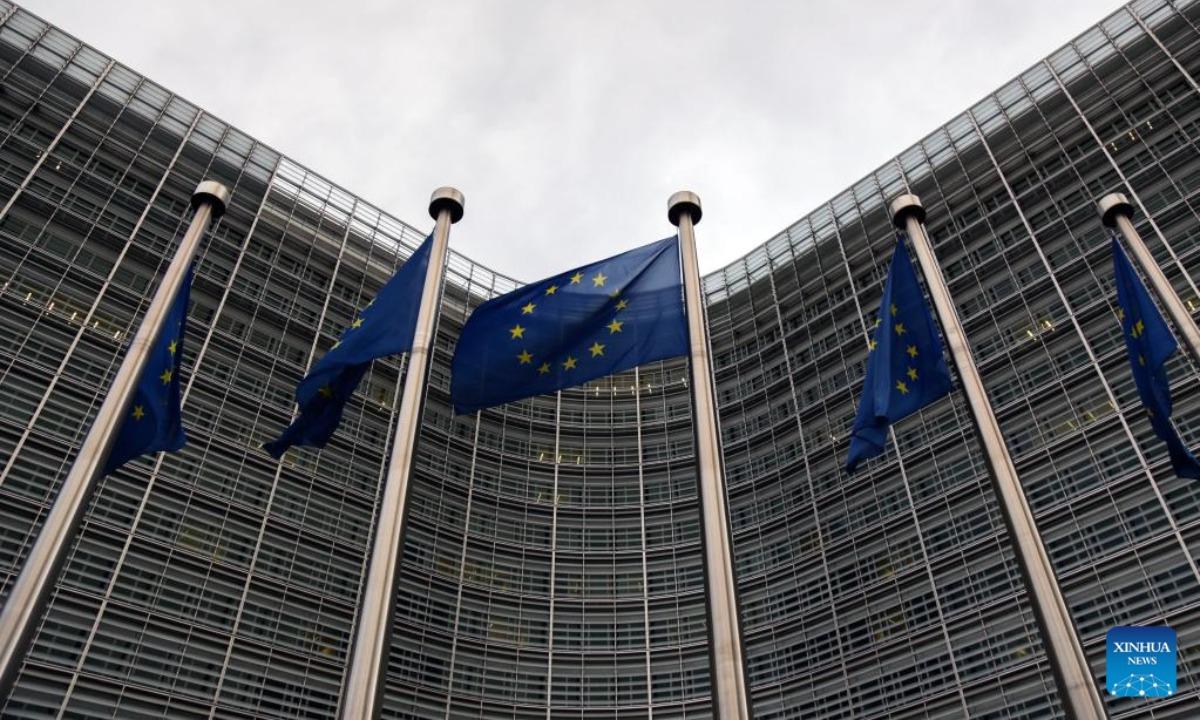 EU flags are seen outside the European Commission in Brussels, Belgium, Jan 6, 2023. (PHOTO / XINHUA)
EU flags are seen outside the European Commission in Brussels, Belgium, Jan 6, 2023. (PHOTO / XINHUA)
BRUSSELS - Supermarkets teaming up to buy goods jointly, companies sharing data and telecoms providers sharing mobile infrastructure will not run afoul of antitrust rules if such agreements are pro-competitive, European Union regulators said on Thursday as part of an overhaul of the rules.
EU competition enforcers typically frown on such alliances, which can potentially be cartels or attempts to shut out rivals. Such anti-competitive practices can expose companies to fines as much as 10 percent of their global turnover.
EU competition enforcers typically frown on such alliances, which can potentially be cartels or attempts to shut out rivals. Such anti-competitive practices can expose companies to fines as much as 10% of their global turnover
The two new Horizontal Block Exemption Regulations (HBERs) and Horizontal Guidelines aim to provide businesses with clarity on how they can cooperate in research and development, production, purchasing, commercialization, standardization or exchange of information.
ALSO READ: Regulators rely on old laws to tackle generative AI
The European Commission, the EU's executive, said the revised rules clarify the difference between joint purchasing and buyer cartels and various joint purchase scenarios.
It said the updated rules on data sharing were prompted by court rulings and feedback from businesses.
"The chapter has now been adapted to cover digitalization and offers expanded guidance on many different types of data sharing," the EU antitrust watchdog said in a statement.
ALSO READ: Japan privacy watchdog warns OpenAI on data collection
"It includes new or expanded guidance on direct and indirect information exchanges, exchanges in the context of other types of horizontal cooperation agreements and in the context of regulatory initiatives."
The updated rules set out factors for assessing Mobile Telecommunications Infrastructure Sharing Agreements, including the scope of the shared services, market coverage and the identity of the operators that companies must comply with to reduce the risk of breaching competition rules.
READ MORE: EU approves Microsoft's Activision deal after UK veto
Sustainability agreements to tackle climate change, reduce pollution, uphold human rights, protect animal welfare, cut food waste and limit the exploitation of natural resources will be exempted from EU antitrust rules if they meet certain conditions.


